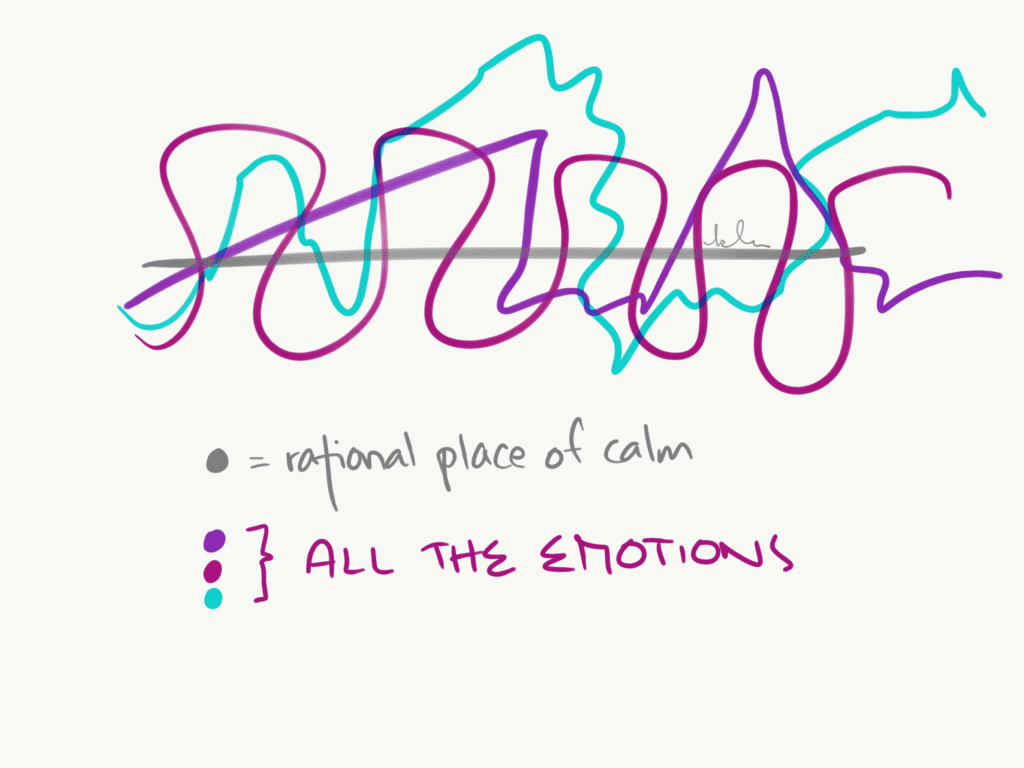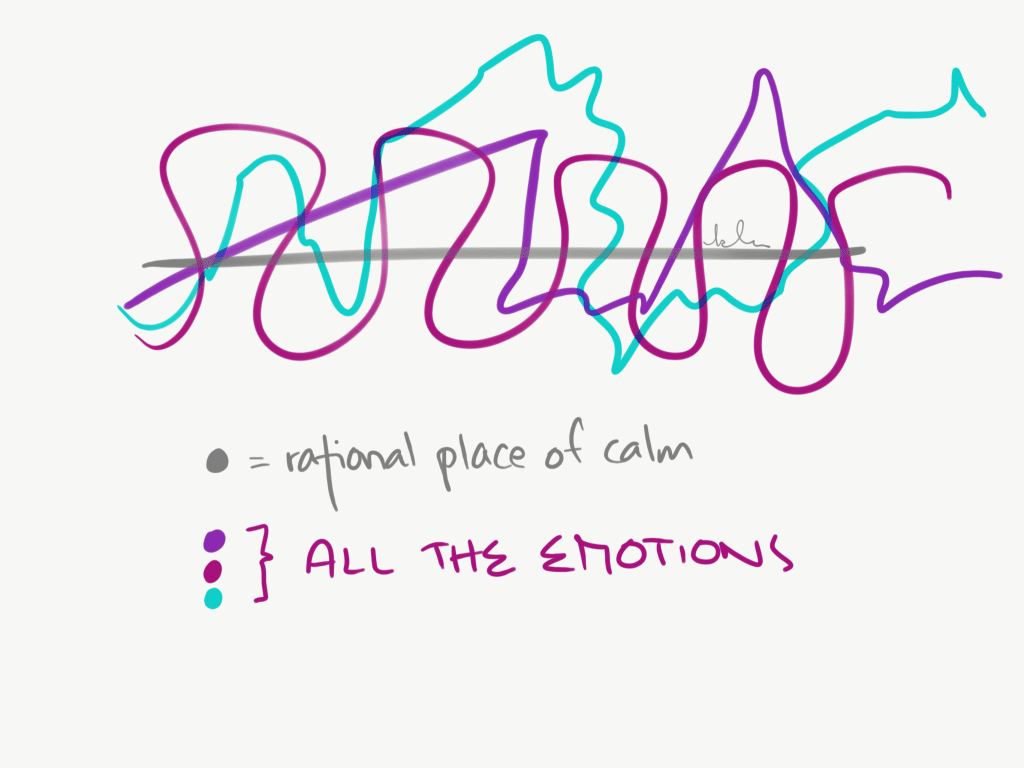 You know when you get one of those emails or texts that gets your heart really racing?
You know when you get one of those emails or texts that gets your heart really racing?
Something has gone wrong or has been difficult with someone (from a friend to a client to a supplier or whoever), and you’ve been communicating with them for a little while. And at first you were okay, just dealing with it. You reply, they reply.
And then you get the heart racer.
The one that gets you really angry or really scared or really confused or really hurt.
As my friend Ellen says, “you are emotions”.
You’re ONLY emotions. That’s all that’s going on when you read that email or communication.
And there’s a very simple rule that helps me immensely with those.
Do not respond,
until your heart stops racing.
I shared this with a friend this week – we met up and were talking about values, and about people who do match your values and people who don’t. And how sometimes, people whose values don’t match yours can feel some pretty harsh things, see things extremely differently than you do. And sometimes they say them. In writing.
And I have learned this the hard way: I must not respond, until my heart stops racing.
It may take five minutes.
It may take five hours.
It may take a few weeks.
(My friend said or “I may never be able to respond!” which could also be an option to consider – or you address it with some counselling so it doesn’t come up later in your life).
But you must not respond until you have calmed down and can think about it from a better place.
It doesn’t mean you won’t still be angry, or sad, or have all the emotions. It’s absolutely right to have the emotions, because it means you care. (It would be a really sad thing if you genuinely did not care about what anyone thinks or feels, ever. It means you’re solely and only focused on yourself.)
But by waiting, you will be responding – not reacting.
Only respond once you’ve calmed down to the point at which you can rationally discuss these questions in your mind (without the heart racing again):
- Ask why, without judgment. Why did they respond that way? Why did I respond that way? What can I look at a little more dispassionately rather than looking at it purely based on emotion?
- What’s going on personally in their life right now? This may help me understand them a little better. It’s not an excuse for bad behaviour, but it gives me a little perspective.
- What can I take responsibility for? It’s never 100% someone else’s fault. I can always find something I could have done better, too – even if it’s tempting to say “yea but that’s so small compared to theirs”, it doesn’t matter. I’m only able to control my own actions and responses, not theirs.
- What can you learn from this? How can I grow? How can I (or my business or my family or my heart) do better next time?
- What are the blessings? One of PF’s internal values (and a personal one to me) is positivity, which we define as looking for the blessing. Looking for the good, the victories, the other side of the very hard coin. The blessings are always there. There is always a victory. I can choose to turn my perspective to see it.
- What is the actual issue (or question or concern or problem)? If I genuinely don’t know, that’s actually good: it means there’s a little more I can do, and the situation isn’t over. It also helps, if you know what the issue is, to respond to the issue only (not all their emotions running wildly all over the place).
My little sketch today is something i drew in the air when I was explaining this to a few friends. We drew the grey line in the air of the place of calmness, where you can see things more clearly. Where you’ve answered the above questions and your heart isn’t racing anymore.
And what we called the “wooo-oro-oooo” line is the green and the pink and the purple and all the colours and the wildness and the feelings. (You’re “all up in your feelings about it” as one of my team members says.)
It’s really simple. It actually applies to in person meetings, too. And things people say to you in person. I’ve definitely made mistakes, many many times, responding when my heart is racing – responding with anger or frustration or hurt or whatever else is going on in the coloured lines area.
But this simple rule is starting to help me a lot. I’m actually finding the heart racing thing lasts a shorter and shorter amount of time the more practice I get at asking the right questions.
And hopefully, I’m getting better at working through what is going on in the relationship that would cause them to communicate in that way – and looking back at my own self, and what I can do to be gracious, and listen, and ask good questions, and stand firm on what I need to. That’s all I can do, and then it’s their decision whether they respond – or react.
To get #karensnotes by email every Saturday (i trust not the heart racing kind), fill in the form here.



